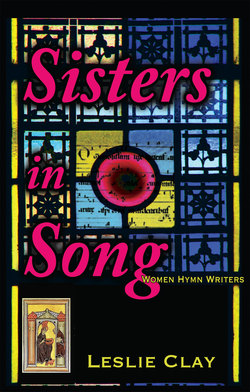Читать книгу Sisters In Song; Women Hymn Writers - Leslie Clay - Страница 7
На сайте Литреса книга снята с продажи.
Cecil Frances ‘Fanny’ Humphreys Alexander
Оглавление1818-1895
“All Things Bright and Beautiful”
“Once in Royal David’s City”
“Jesus Calls Us”
She has been called the finest of all hymn writers for children. Fanny, as she was known, was born in Wicklow, Ireland and began writing verse as a child. Her father, an officer in the Royal Marines, was a demanding man. Unsure of his approval, she hid her poems under the carpet. But after he discovered them when she was only nine years old, he made a box with a slot in the top for her to place her poems. He then set aside Saturday evenings to read them to the family. By the 1840s, she was already known as a hymn writer, often writing to help the boys’ Sunday school class, which she taught in order to learn Christian doctrine, and her songs were soon included in Church of Ireland hymnbooks. Money from her first publications helped build a school for the deaf in 1846 and her book profits from Hymns for Little Children were donated to the school. This book was so successful, it went through 100 editions. After gaining some success as a writer, she married a much younger man, an Anglican clergyman, Bishop of Derry, in 1850. She loved the people of his parish and loved to go from house to house to visit the sick, poor, and grieving. Her husband said, with some pride, that he would be remembered as Cecil’s husband. Though she was oblivious to the accolades given to her compositions, she could be moved. When told that a man had a change of heart toward God upon hearing her verse, she rose and exclaimed, “Thank God, I do like to hear that.”
The lyrics to “Once in Royal David’s City” were published in her book, Hymns for Little Children. A year later, this song was set to music. Sung mainly as a Christmas carol today, many diverse performers have recorded it, from the Mormon Tabernacle Choir to the rock band, Jethro Tull. In this carol, she tried to teach children why we celebrate Christmas and what it means to us.
Fanny may have been inspired in part by Coleridge’s Rime of the Ancient Mariner when she wrote “All Things Bright and Beautiful” in 1848: “He prayeth best, who loveth best; all things great and small; for the dear God who loveth us; he made and loveth all.” The four lines of the refrain were used as the title to four of James Herriot’s books about his life as a veterinarian. Coleridge’s influence nothwithstanding, the primary impetus for this hymn was to help her godson understand the Apostles’ Creed, particularly the phrase, “Maker of heaven and earth. . .” Fanny was a product of her time and place. The last verse today sounds offensive to modern sensibilities as it decrees that our social and economic status is ordained and blessed by God: “The rich man in his castle, the poor man at his gate. He made them, high or lowly, and ordered their estate.” Most hymnals today have omitted this verse.
One day, her husband asked her to write a hymn for adults as a basis for a sermon to be delivered on St. Andrew’s Day. She agreed to try and together they read the Bible verses about the calling of Andrew by Jesus. “Jesus Calls Us” was one of the few hymns she wrote for adults. That work was read at the close of her husband’s sermon that Sunday.
